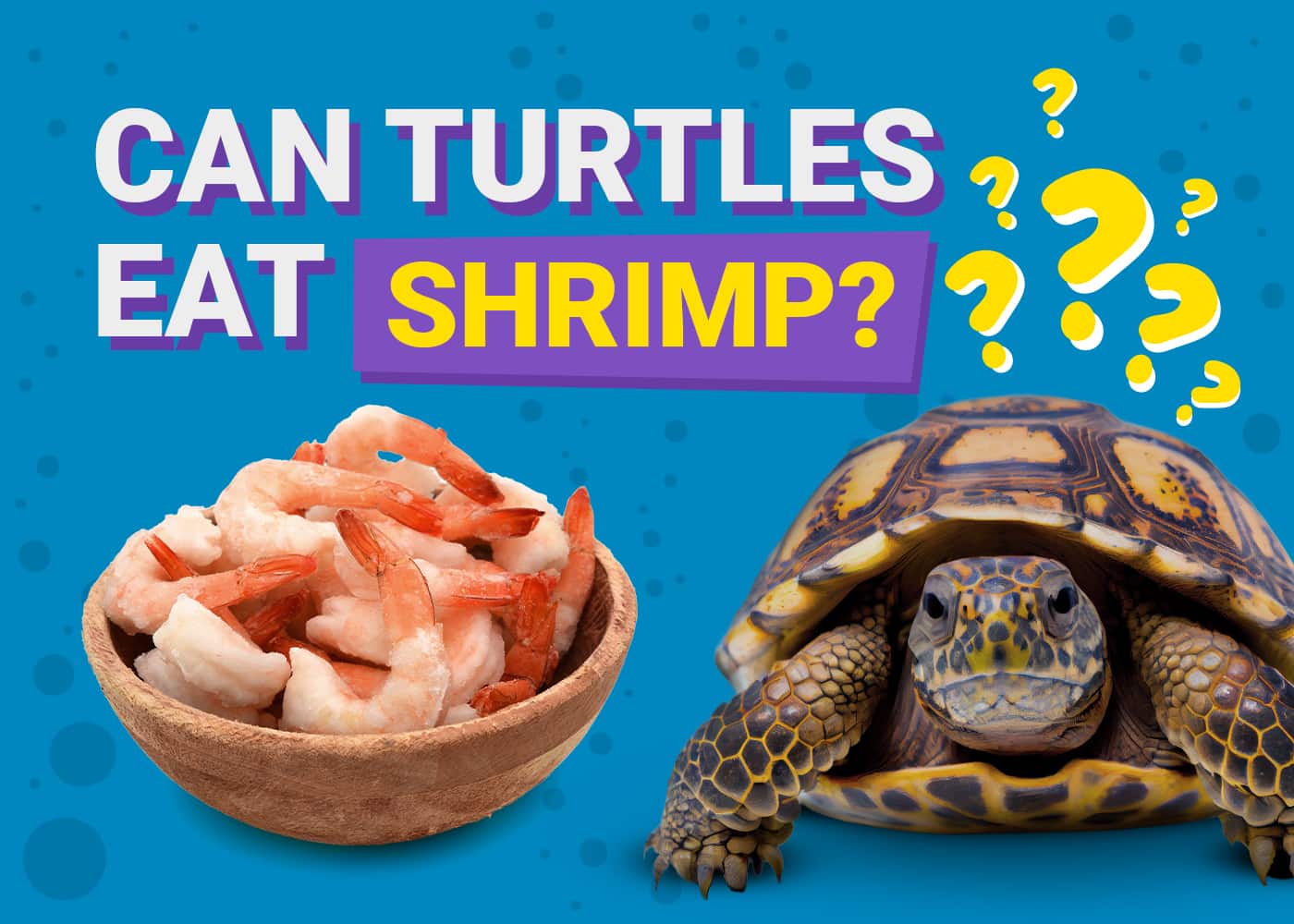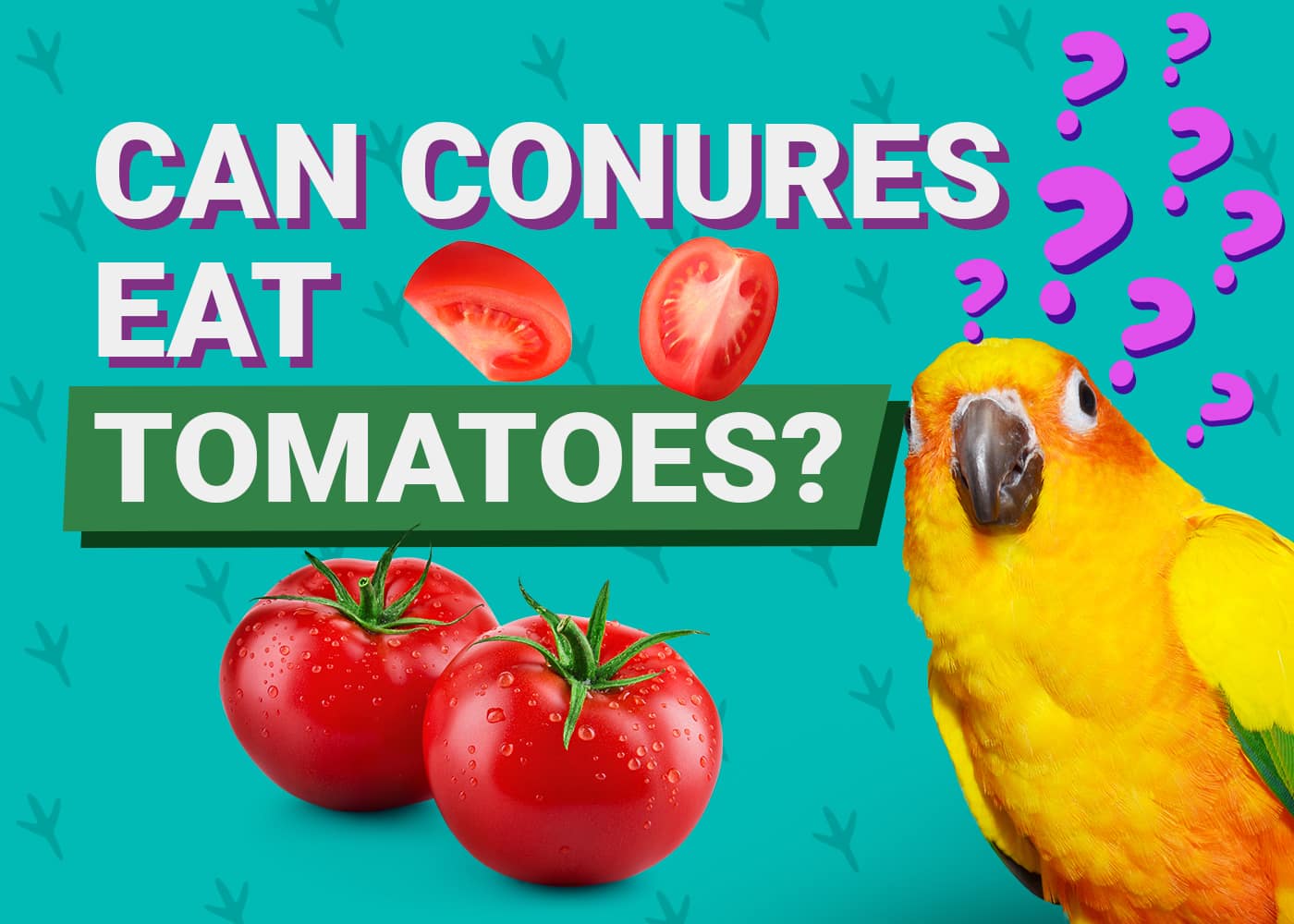VET APPROVED

The information is current and up-to-date in accordance with the latest veterinarian research.
Learn more »Click to Skip Ahead
Our herbivorous guinea pigs absolutely love munching down on fruits and veggies. In addition to their normal commercial diets, they love having a supply of raw goodies to crunch on. Raw foods can be exceptionally healthy for our piggies, as long as we provide the right ones.
However, some fruits and vegetables can be unhealthy—and even dangerous. So, in light of all that, where does melon fall? Melon comes in quite a medley of choices—watermelon, cantaloupe, and honeydew being among them.
Melon can be very beneficial to guinea pigs in small portions. However, giving your guinea pig too much does not have positive effects.

Melons Can Be Yummy for Guinea Pigs
Melon can be a fantastic food item to add to your guinea pig’s existing diet. These fruits are typically very soft and easy to eat. They also have a large water content for added hydration. Each melon has its own percentage of vitamins and minerals, but they all share very nutritious content.
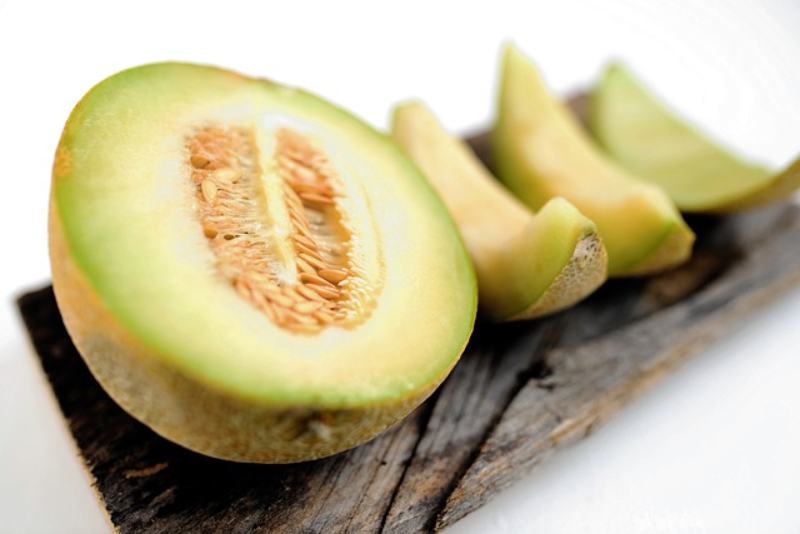
Health Benefits of Different Kinds of Melons
Each type of melon has its benefits! Here are some melons you might be ready to serve up to your piggies, along with the perks.
Cantaloupe
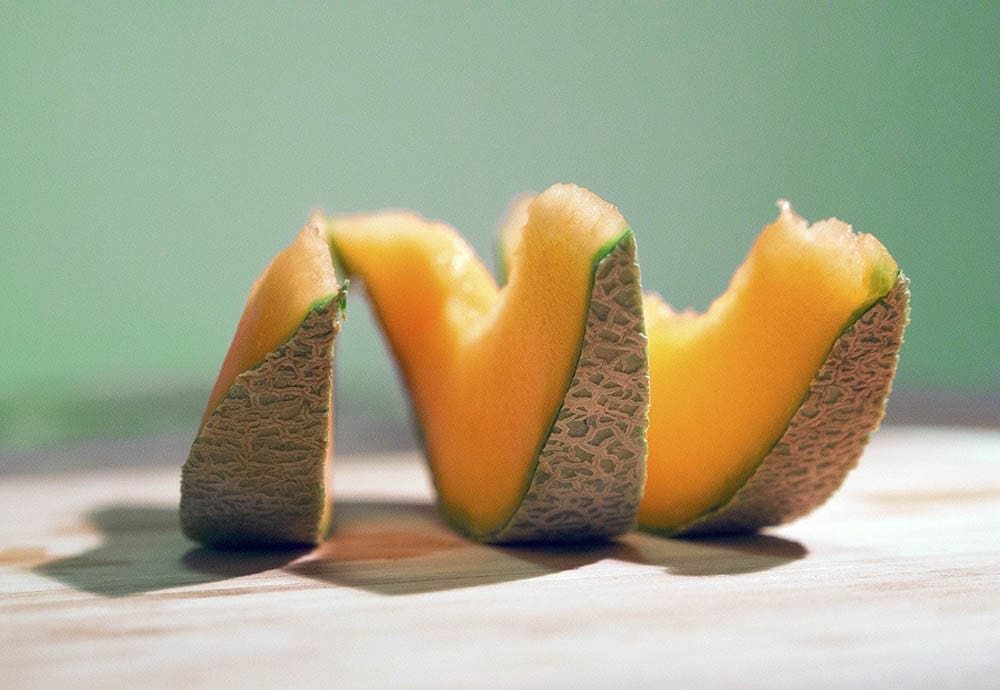
Cantaloupe is a very popular melon in the United States. Statistically, about 90% of all cantaloupes are grown right in the US in states like California, Texas, and Arizona. You can virtually grow this delicious melon anywhere—or find it in the grocery.
- Vitamin A
- Vitamin C
- Vitamin K
- Magnesium
- Manganese
- Copper
- Niacin
- Potassium
Watermelon
Watermelon is a juicy summertime favorite. We’re probably all very familiar! Related to squash and cucumbers, this sweet treat is appealing due to its flavor, color, and texture. This black-seeded melon is a fibrous fruit that offers a wide selection of vitamins and minerals.
- Potassium
- Magnesium
- Vitamin A
- Vitamin C
Honeydew
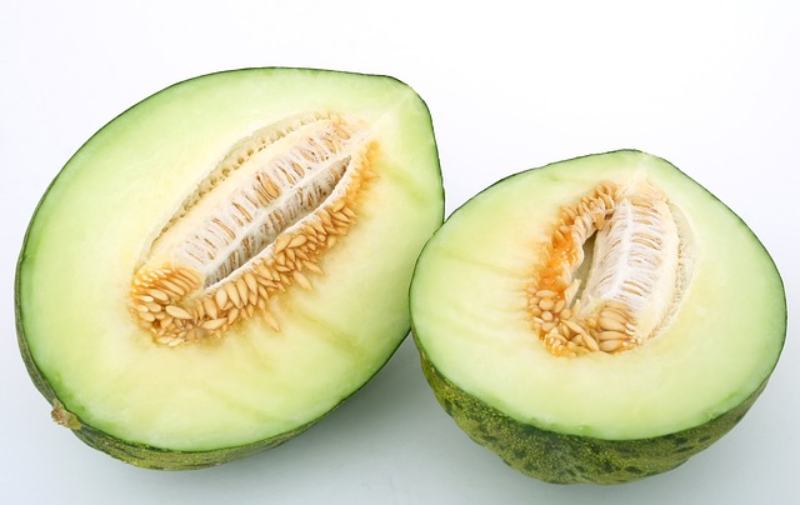
Honeydew is an instantly recognizable type of melon due to its pale color and unique flavor. The composition looks a lot like cantaloupe, and it’s similarly sized as well. It is stated by DPI infographic information that honeydew is the sweetest of all melons, so your guinea pig just might like it the most.
- Potassium
- Folate
- Vitamin C
- Fiber
- Vitamin B6
Muskmelon
You might be seeing the word muskmelon and thinking, what is the difference between that and cantaloupe? The truth is all cantaloupe are muskmelon but not all muskmelons are cantaloupes. Muskmelon is a broader term that includes cantaloupes and other orange, sweet melons.
- Potassium
- Copper
- Iron
- Magnesium
- Manganese
- Zinc
- Calcium

Offer Melons in Moderation
Melons appeal to your guinea pig because they are super sweet and have great texture. Because they’re so sweet, your guinea pig might favor these items over their normal food, so make sure to give it to them as a dessert and not a main course.
It’s best to keep melon samplings down to approximately 2 times per week in small quantities.
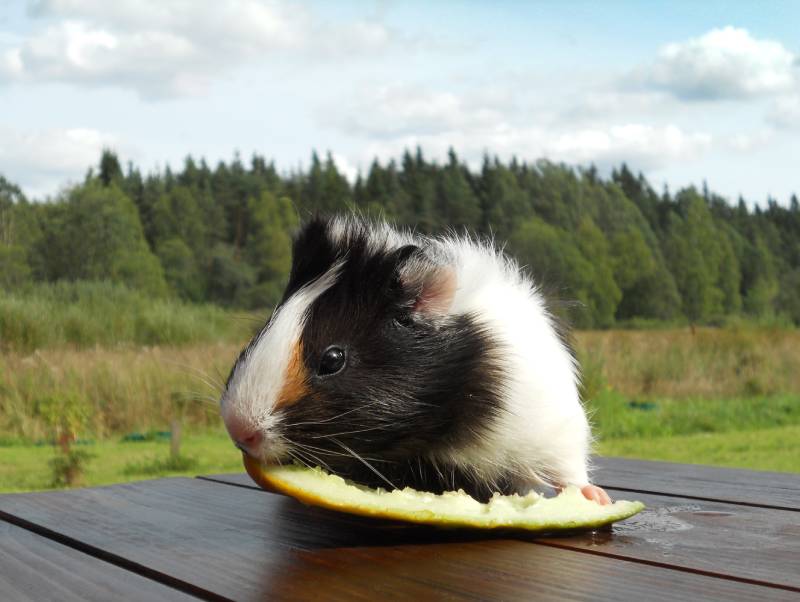
Remove Any Uneaten Pieces
If you have ever enjoyed a piece of melon, you know that after a little while, it starts getting pretty mushy. Let your little guinea pig go to town, but make sure to remove any pieces of melon that they don’t eat after 20 minutes.
This fruit can spoil very quickly in the cage, leading to bad smells and soiled bedding. It will only take you a few seconds to collect any foods your guinea pig didn’t get to and toss them in the trash.
How to Serve Melon to Guinea Pigs
If you have melons on hand, we recommend organic or melons bought from a farmer’s market to reduce pesticide exposure risk. Then, cut all the skin off, removing any seeds you might see. Cut the melon into easy-to-eat pieces to prevent choking.
Remember, if this is the first time your guinea pig will have melon, only offer a small amount. Slowly introduce the food to your guinea pig’s diet.
Recommended Guinea Pig Diet
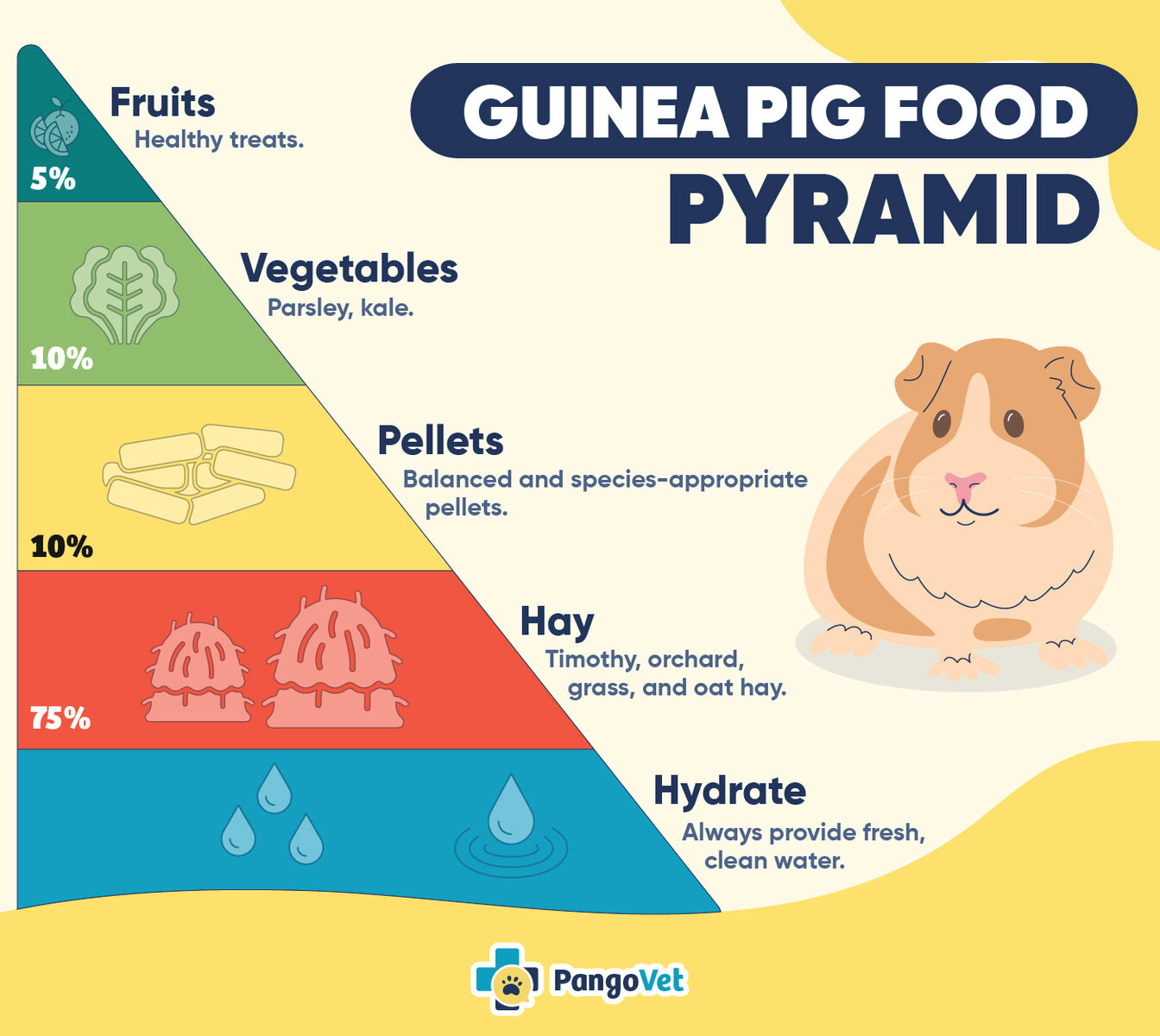
The vast majority of what your Guinea Pig should be eating on a daily basis is good quality grass hay such as Timothy hay. This should be available to them at all times and make up around 80% of their diet. They also need around a cup of mixed vegetables every day to offer them a variety of nutrients. Next comes Guinea Pig pellets of which they need a tablespoon of to ensure adequate vitamin C and fiber. Fruit such as cantaloup melon should only be considered an occasional treat.

Conclusion
So now you know that melon is a super nutritious and delicious food for your guinea pig. However, it is very high in sugar, which can disrupt their natural gut flora. Because of this, it’s best to only give your guinea pig small amounts of melon along with other vegetables and fruits.
When fed appropriately, melon can become a mealtime favorite. Always remember to remove any leftovers to keep rotting food out of the cage.
- https://guineadad.com/blogs/news/guineadad-food-blog-can-guinea-pigs-eat-honeydew-melon
- https://kaveecage.net/blogs/us/can-guinea-pigs-eat-watermelon
- https://www.healthline.com/nutrition/watermelon-health-benefits
- https://www.herbazest.com/herbs/melon
- https://dpi.wi.gov/sites/default/files/imce/school-nutrition/pdf/fact-sheet-honeydew.pdf
Featured Image Credit: Sofiia.P, Shutterstock






